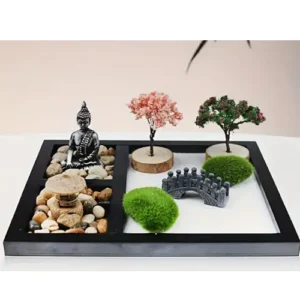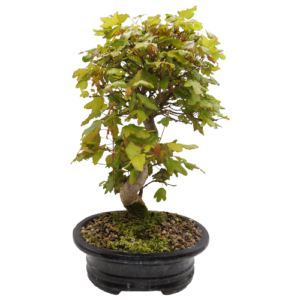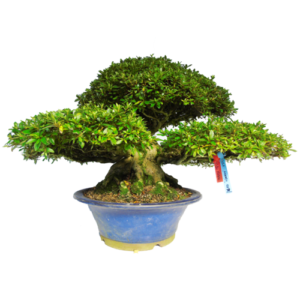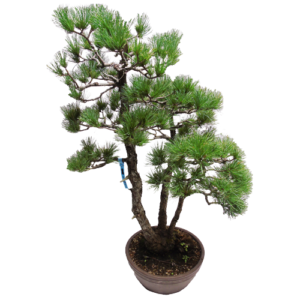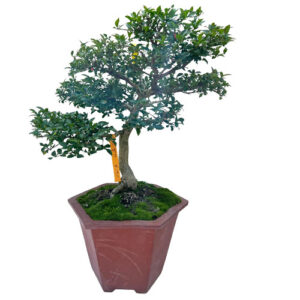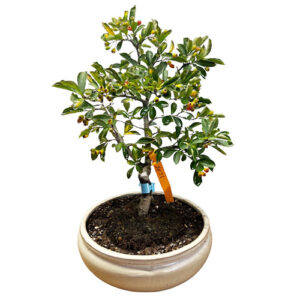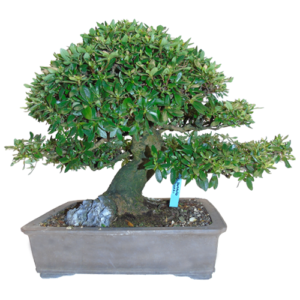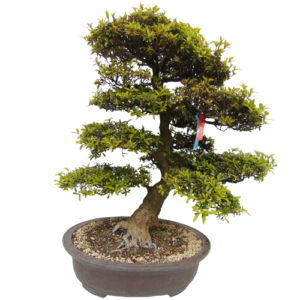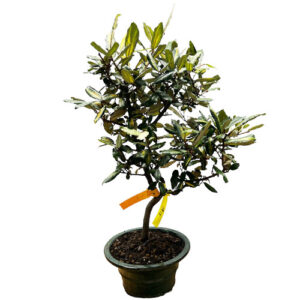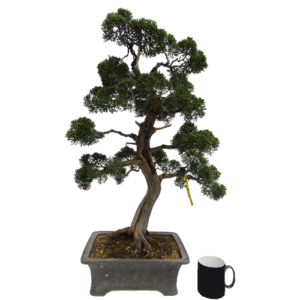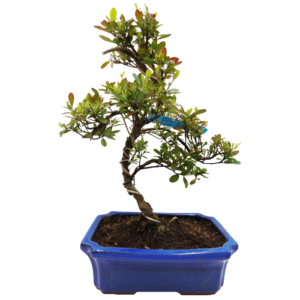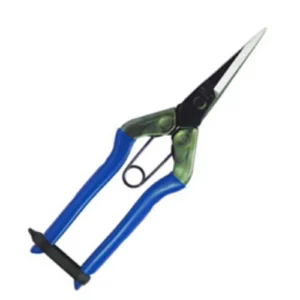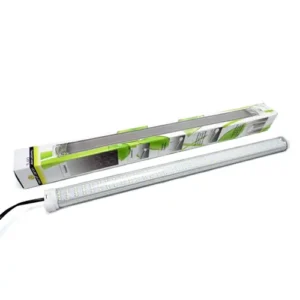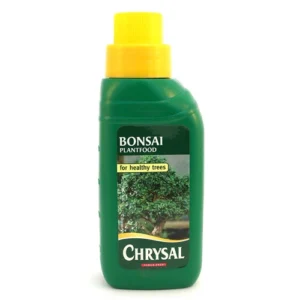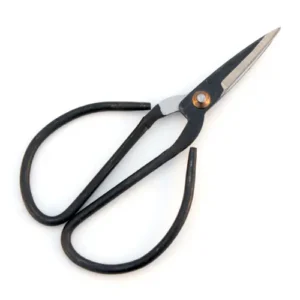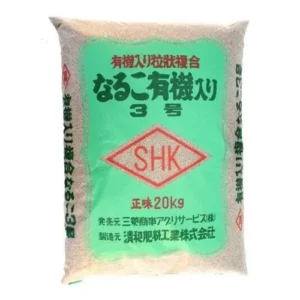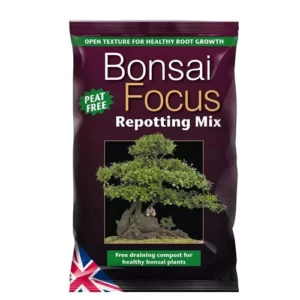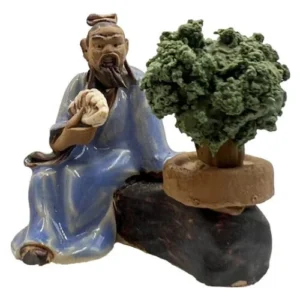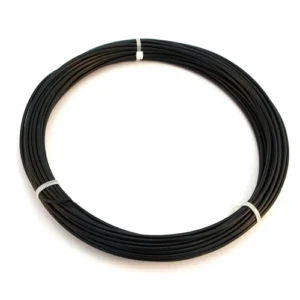Castanea sativa
Sweet Chestnut Bonsai
Native to Asia Minor and Southern Europe. Also known as ‘Spanish Chestnut’, adorned with large vibrant serrated leaves and dark bark, these long-living deciduous are found in oak forests throughout Europe. Castanea sativa flowers in June when its titular chestnuts arrive.
Sweet Chestnut Bonsai Care Tips
Placement
Choose an outdoor location that can provide full sun in the growing season. Spanish Chestnut is sensitive to late frosts and should be protected from severe ones. From October to March, protect from frost with a spot in a cool greenhouse or shed.
Watering
Your Sweet Chestnut bonsai must be watered daily throughout the growing season. More so in the summer and at a fairly reduced rate in the winter. Be mindful not to overwater the tree.
Feeding & Fertilising
Feed your Sweet Chestnut, during the growing season, every two to three weeks with a balanced fertiliser.
Pruning & Wiring
Pruning your bonsai is important not only to create or maintain an aesthetic style but to also ensure optimal health. Cut back the new shoots of your Sweet Chestnut regularly to encourage branching.
Sweet Chestnut are responsive to wiring as their branches are quite flexible. Be sure to take care that their smooth bark isn’t damaged in the process. We recommend using wires with a thickness that matches the thickness of the branch: if the wire you choose is too thick you will damage the bark. If it is too thin, it won’t be effective.
Repotting
Repotting your tree is an important way to provide a fresh and suitable soil mix and ensure appropriate root health. Repot your Sweet Chestnut every 2-3 years in the Spring. A soil mix two thirds Akadama, with the rest sand and soil is advised.
Trees that are ready for repotting will require root pruning, a suitable new pot and appropriate soil mix.
When repotting, do not cut back the root mass by a large amount, and choose a well-draining soil mix that has a neutral or slightly higher PH value of 5-6 but not over 7. We tend to use a mixture of different speciality bonsai soils on our trees. Every species is different so please contact us for free soil-mix advice or to take advantage of our repotting service.
Bonsai trees aren’t only magnificent additions to an indoor oasis, they are more than capable of standing out in any garden. Many Bonsai species are incredibly hardy and withstand nature’s colder and damper turns with aplomb making them worthwhile outdoor plants. We have an extensive library of care guides for outdoor bonsai trees. It’s not about selecting the perfect bonsai, it’s about selecting the perfect bonsai for you.

